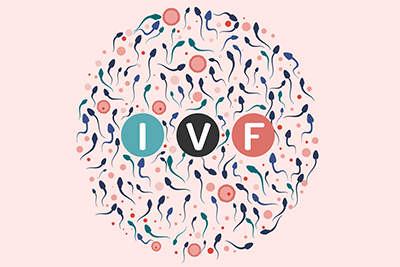Frequently Asked Questions On Infertility And IVF: What Is Infertility?
Frequently Asked Questions On Infertility And IVF: What Is Infertility?

The failure to conceive (female) or to father (male) a child for a period of 12 months or longer due to a deviation from, or interruption of, the normal structure or function of any reproductive part, organ or system for reasons other than surgical sterility or use of contraceptives. The words infertility and subfertility are interchangeably used, however infertility is the inability to conceive without assisted reproduction and subfertility is a reduced ability to conceive that may be improved through assisted reproduction (ART).
What causes infertility?
There are many conditions that may contribute to infertility. These are examples:
Endometriosis: Endometriosis is a condition in which endometrial tissue, the tissue that lines the inside of the uterus, grows outside the uterus and attaches to other organs in the abdominal cavity such as the ovaries and fallopian tubes.
Genetics: Trisomy is the presence of three chromosomes, rather than the usual pair of chromosomes. Monosomy is the absence of one member of a pair of chromosomes. Translocations can be balanced or unbalanced, describing the location of changed materials. Chromosome abnormalities may result in unviable embryos or miscarriage.
Immune Disorders: Disorders of the immune system, from increased NK (natural killer) cells to APA (anti-phospholipid antibodies), can contribute in a multitude of ways to the problem of infertility.
PCOS: Polycystic Ovarian Syndrome (PCOS) is a health problem that can affect a woman’s menstrual cycle, fertility, hormones, insulin production, heart, blood vessels, and appearance.
Raised FSH: The follicle stimulating hormone (FSH) encourages the follicles to grow and the egg to ripen. If levels are raised and the body stimulates ovulation, the egg is likely to be of poor quality.
Tubal Issues: Tubal factor infertility accounts for about 20-25% of all cases of infertility. This category includes cases in which the woman has completely blocked fallopian tubes and also women who have either one blocked tube or no tubal blockage but tubal scarring or other tubal damage.
Premature Ovarian Failure: (POF), also known as early menopause, is a condition where the supply of eggs has prematurely declined or the follicles that supply eggs are less reactive to the follicle-stimulating hormone.
Male Factor: In approximately 40 percent of infertility cases, sperm abnormalities are either a factor or the factor. Treatments may include diet and lifestyle, surgery, or the ICSI procedure.



